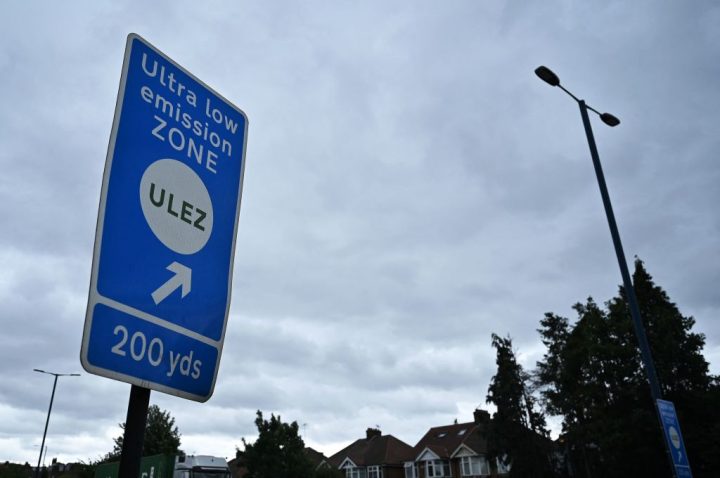My fiancée wants to put a sign up outside our house demanding that the speed limit be reduced to 20mph. I’d rather she didn’t. Drivers have enough to cope with already.
Such is the peer pressure emanating from the neighbours, however, in collaboration with my fiancée, that the decision is likely to be taken out of my hands. Shortly, I fear, I’ll be master of a house with ’20 is plenty’ sign on the gate, accompanied by a picture of a snail.
Just because sticking up for motorists worked in Uxbridge doesn’t mean it will work across the country
I offer this vignette because the government is reportedly mulling a crackdown on councils that seek to impose 20mph speed limits, ‘bus gates’ – bus-only shortcuts – and ‘low-traffic neighbourhoods’ (LTNs). It comes in the wake of the Uxbridge by-election, which was turned into a referendum on Ulez, and in which the voters returned the Tories because they were perceived to be pro-motorist. The Prime Minister is seeking to capitalise on this momentum, curbing the spread of anti-car zealotry among local councils in an attempt to ring-fence society’s final vestiges of common sense.
The problem, however, is that not everybody agrees with him. Or me, for that matter. As regular readers will be aware, I write as a cyclist. I’m typing this on the train to London, my legs sore from the 75 miles I covered over the weekend on my racer, my Brompton nestling contentedly in the vestibule.
You’d have thought I’d be rabidly pro-LTN. But like most cyclists, I’m also a motorist. While on two wheels, I go out of my way to ride considerately, often pulling over to allow cars to pass rather than endure the gnawing guilt as they crawl along behind me at 20mph. I know their frustration, and such gestures of chivalry are my contribution to cyclist-motorist harmony. I suppose you could call me a pro-motor-MAMIL (middle-aged man in lycra).
When it comes to the traffic outside my front door, I feel similarly. Neighbours, I say, let’s be chivalrous. Let’s give motorists their space.
The car is, above all, a symbol of freedom. Not that it’s a very good symbol: it guzzles gas and kills people and gets stuck impotently in traffic jams. But it also offers you the ability to go where you want when you want to, or to pack up and leave for a new life. Restraining the beast to a counter-intuitive 20mph on a clear road because of the frenetic hand-wringing of the local busybodies seems to me like a castration.
My fiancée, however, disagrees. She doesn’t like it when our windows rattle as some boy racer thunders past. She gets stressed by the delivery lorries that squeeze past our house on their way to the rear entrance of the local supermarket. And she hates the clouds of exhaust that roll across the pavement and lick their tongues into the corners of our front garden and under our front door.
But her support for the 20mph limit is less simplistic than it seems. As a motorist, she is a committed petrol head who loves nice machines and gets a trill out of racing sports cars at track days. The speed and sexiness of a decent motor gets her blood pumping. Like me, she’s very much pro-car in general; but also pro-pedestrian in certain parts of town.
This microcosm of complexity presents the Prime Minister with a challenging picture. Just because sticking up for motorists worked in Uxbridge doesn’t mean it will work across the country. Ulez has radicalised people living in affected areas of London; the sudden imposition of a £12.50 daily levy is enough to send the most mild-mannered man berserk.
Outside of Ulez boundaries, however, traffic control is less of a wedge issue than the Tories seem to think. Polling has shown that parents of young children support anti-car measures, particularly outside schools, but this is not reflected so clearly across society.
The fact is, most people are both pedestrians and motorists; they aren’t Spartans one way or the other. When confronted with a particular intervention, like the 20mph speed limit, they may disagree, but they all want roughly the same thing. As pedestrians, they appreciate safe, clean neighbourhoods; but when behind the wheel, they don’t want too many traffic-calming obstacles or have to gnash their teeth at punitive speed limits. Seizing upon the issue as an election-winner might prove a little hubristic.







Comments